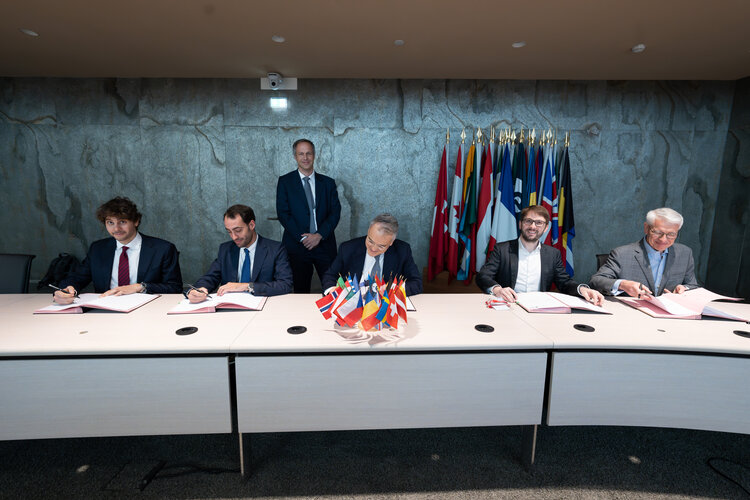To that end, today ESA has signed four contracts with industrialists with diversified background, such as ArianeGroup (FR), Avio (IT), Sener (ES), The Exploration Company (FR) to study solutions for the preparation of the future for the sector, with focus on European expendable and reusable launch systems covering the performance ranges of the micro-mini, medium and heavy launchers, including human space transportation applications.
The studies shall elaborate on the findings of a technical vision exercise called “Vision 2030+” which was initiated by the ESA Space Transportation Directorate in August 2021 and involved technical experts from major national agencies and institutions from ESA Member States and European industry. They envision future small, medium and heavy space transportation systems based on a common set of building blocks, aiming for the fullest extent of reusability and supporting the possibility of autonomous European human space transportation capabilities.
The studies are part of the efforts undertaken in support of preparing an informed debate on Europe’s space ambitions in space transportation and exploration at the occasion of the Space Summit to be held in Sevilla, Spain in November 2023. The results of these studies shall also help ESA to respond to the questions raised in the recently released report of the independent High-Level Advisory Group on Human and Robotic Space Exploration for Europe (HLAG), titled: ‘Revolution Space. Europe’s Mission for Space Exploration’.
“These studies are driven by the desire to rebuild a common future for space transportation in Europe. This is an ambitious objective, but now is the time for ESA and all European stakeholders to come together to ensure that Europe can meet its needs and compete at global scale”, says Giorgio Tumino, ESA Chief Technical Advisor for Space Transportation.
“The contracts with legacy actors and new players are expected to provide diversified answers and perspectives, enabling ESA to elaborate a European operational capability roadmap, which builds on proven technical and technological expertise as well as new disruptive approaches,” says Daniel Neuenschwander, ESA Director of Space Transportation.



